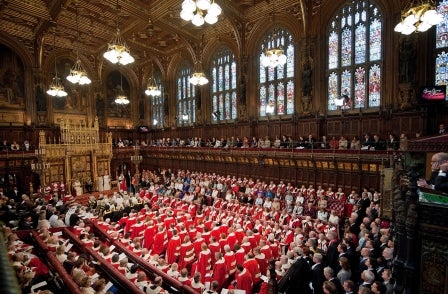
Local newspapers could be set to lose a significant source of revenue after a Liberal Democrat peer proposed an end to the practice of publishing public notices in the press.
The amendment to the Local Audit and Accountability Bill, due to be debated in the House of Lords tomorrow, could bring an stop £26 million of annual income for local papers.
Lord Tope has tabled an amendment to the bill stating that the statutory “requirement for a local authority (in whatever capacity) to publish a notice, an advertisement or any other matter in a newspaper shall cease to have effect”.
Instead, he said that a council should be free to publish the notices anywhere it “thinks is likely to bring it to the attention of persons who live in its area”. This definition could include the council’s own website or social media.
Communities Secretary Eric Pickles is understood to have been considering the rule change for some time in the face of a campaign from a number of councils.
Local Government Chronicle reported this week that Pickles told a group of Tory councillors that the requirement to use the local press would end within two years.
The Local Government Association last month called for an end to “this outdated requirement” and published figures suggesting it cost councils £26 million a year to comply.
The proposal is likely to anger local and regional newspaper publishers, increasingly facing up to dwindling print advertising revenue.
The National Union of Journalists is also opposed to ending the requirement.
It said: "At a time of severe public spending cuts, it is easy to see the temptation for public bodies to want to deny newspapers this important revenue-raiser. But it would disingenuous for local councils to suggest that they can disseminate this essential information as effectively by using social media, public noticeboards and parish newsletters.
"Most people do not see social media as an appropriate place for information about traffic orders and the like. Older readers, who get most of their information and news via local newspapers and radio, would lose out if this amendment was adopted.
"Any move to replace a specific statutory obligation with anything less tangible will result in a serious decline in the reach of the information, with a consequential loss of public engagement in their local communities."
The Newspaper Society said that research showed that "the public want and expect to find… notices in their local newspaper and to remove them would constitute a serious threat to local democracy".
It added: “The Newspaper Society and regional press industry strongly oppose any proposals to remove the current requirements to publicise public notices in local newspapers. If enacted, they would lead to people missing out on vital information about their area, constituting a grave threat to local democracy."
The body representing newspaper publishers cited a 2012 study by market research agency GFK that showed that more than twice as many people read public notices in newspapers as visit council websites.
But Sir Merrick Cockell, chairman of the LGA has described the practice as “legislation from a bygone age”.
He said: “Local newspapers are a key part of democracy and councils and councillors work with and support them every day. We are sympathetic to the difficult financial position many of them are in and certainly don’t want them to go out of business.
“However, the current plight of local newspapers is down to the changing way people access news and information, a move to advertising online and national parent companies systematically stripping them of staff and assets, so speeding up their decline. It is not the duty of local taxpayers’ to prop up local newspapers because their owners chose to spend their multi-million pound profits elsewhere, primarily investing in online media and increasing shareholder return.”
Email pged@pressgazette.co.uk to point out mistakes, provide story tips or send in a letter for publication on our "Letters Page" blog

